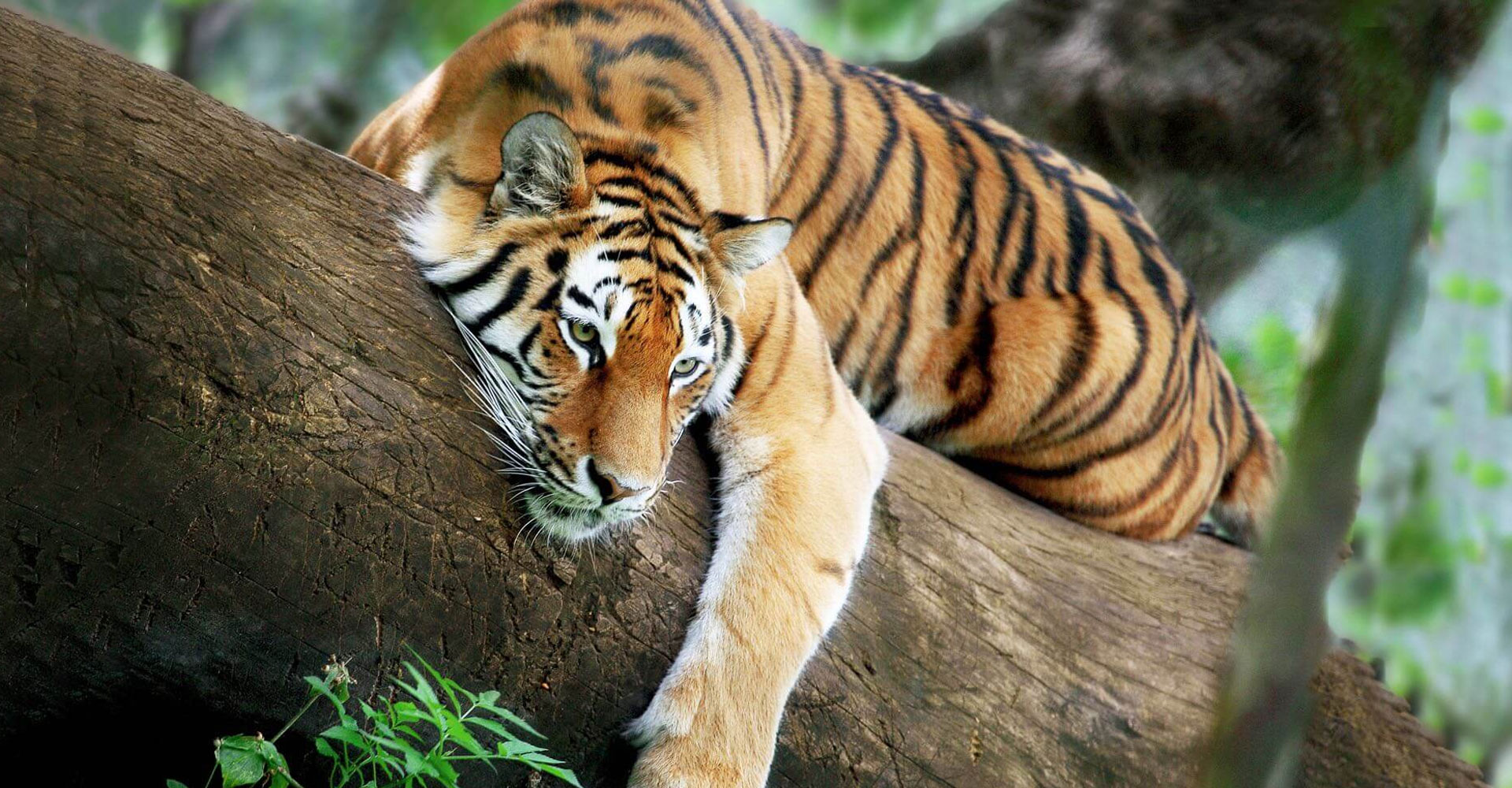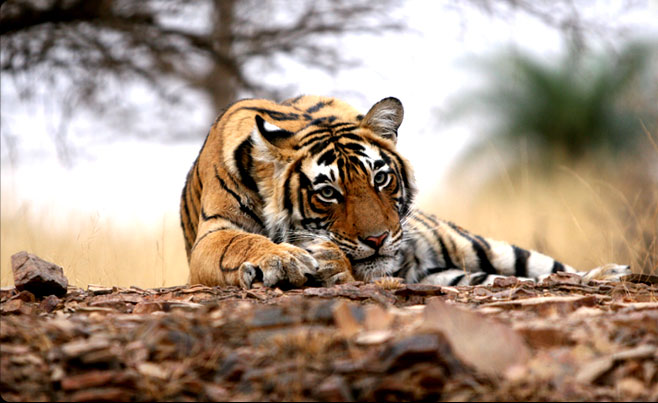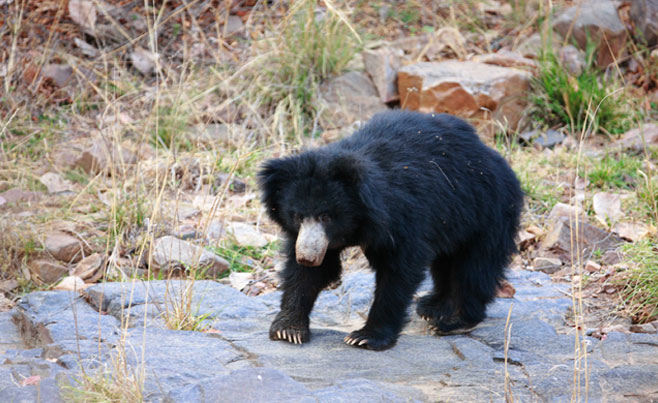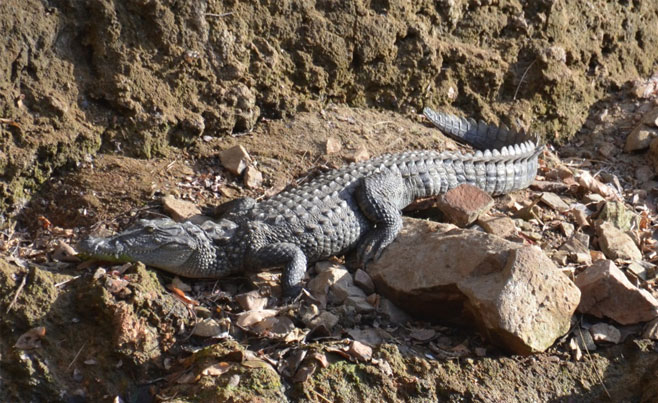Dudhwa National Park
Best Time To Visit
Jan
Feb
Mar
Apr
May
Jun
Jul
Aug
Sep
Oct
Nov
Dec
Most Popular
High Sighting
Park Closed
Low Sighting
About Dudhwa National Park
Species
Tiger, Rhinos, Barasingha, Sloth bear, Leopard, Sambar, Chital, Crocodile, .
Overview
Dudhwa National Park is a sprawling wildlife reserve located in the Terai region of Uttar Pradesh, India. Spanning an area of approximately 490 square kilometers, it is one of the most significant national parks in the country and serves as a vital refuge for a diverse array of flora and fauna. The park's name, "Dudhwa," translates to "milky-white" and is derived from the enchanting Dudhwa River that meanders through the landscape.
History & Culture
Dudhwa National Park was established in 1977, with the primary aim of conserving the endangered swamp deer, also known as the barasingha. However, over the years, it has evolved into a comprehensive conservation area, providing sanctuary to a multitude of species and ecosystems. The park's topography comprises of vast grasslands, dense forests, and numerous wetlands, creating a rich and varied habitat for wildlife.
The park is renowned for its incredible biodiversity. It is home to more than 38 species of mammals, including the magnificent Royal Bengal tiger, Indian rhinoceros, Asian elephant, sloth bear, leopard, and wild boar. Dudhwa is especially celebrated for its population of the barasingha, which has been brought back from the brink of extinction. Other notable species that can be spotted here are the Indian pangolin, swamp crocodile, and hispid hare, all of which are listed as vulnerable or endangered
Avian enthusiasts will be captivated by Dudhwa's avifauna, which boasts over 450 species of birds. The park is a paradise for birdwatching, with migratory birds flocking to its wetlands during the winter season. Some of the avian highlights include the Bengal florican, great slaty woodpecker, white-rumped vulture, Sarus crane, and various species of owls, eagles, and waterfowl. The park's marshy grasslands and water bodies offer an ideal breeding ground for these winged wonders.
Apart from its diverse wildlife, Dudhwa National Park is renowned for its pristine natural beauty. The landscape is a picturesque blend of tall grasslands, dense Sal forests, and tranquil lakes. The park's vegetation comprises of dry deciduous forests, moist deciduous forests, and semi-evergreen forests, supporting a wide range of plant species. The prominent tree species found here include the Sal, Khair, Asna, and Jamun.
Conservation efforts at Dudhwa National Park have been commendable. The park is managed with a focus on protecting its fragile ecosystems, preventing poaching, and promoting sustainable tourism. The Dudhwa Tiger Reserve was established in 1987 to provide enhanced protection to the park's tiger population. The park also collaborates with local communities to raise awareness about wildlife conservation and promote eco-friendly practices.
Visitors to Dudhwa can engage in various activities to experience the park's natural wonders up close. Jeep safaris and elephant safaris are popular ways to explore the park and spot wildlife. Nature walks and birdwatching expeditions are also organized, allowing visitors to delve into the park's rich avian diversity. The Dudhwa Interpretation Centre offers valuable insights into the park's ecology and conservation efforts.
In conclusion, Dudhwa National Park stands as a remarkable testament to India's commitment to preserving its natural heritage. With its thriving wildlife, breathtaking landscapes, and conservation initiatives, the park provides an unforgettable experience for nature enthusiasts and wildlife lovers. Dudhwa's importance in safeguarding endangered species and promoting environmental awareness makes it a shining example of successful conservation practices.
Trails and Excursions
Dudhwa National Park is a haven for wildlife enthusiasts and offers ample opportunities for wildlife sightings. The park's diverse ecosystems, including grasslands, forests, and wetlands, support a wide range of animal species. Here are some of the remarkable wildlife sightings one can experience at Dudhwa National Park:
Royal Bengal Tiger:
Dudhwa is known for its population of the majestic Royal Bengal tiger. Although sighting a tiger is a matter of luck due to their elusive nature, Dudhwa provides a favorable habitat for these magnificent predators. Jeep safaris and elephant safaris are the best ways to increase the chances of spotting a tiger.
Indian Rhinoceros:
Dudhwa National Park is one of the few places in India where you can find the Indian rhinoceros. These massive creatures, with their single horn, are a sight to behold. The park's rhino population is thriving, and visitors have a good chance of spotting them during their visit.
Barasingha (Swamp Deer):
Dudhwa is renowned for its successful conservation efforts in saving the barasingha, also known as the swamp deer, from the brink of extinction. The park is home to a significant population of these elegant creatures. During the rutting season, the males display their magnificent antlers, making for a remarkable wildlife sighting.
Asian Elephant:
Dudhwa National Park is inhabited by a population of Asian elephants, which adds to the park's allure. These gentle giants can often be seen roaming the forested areas in search of food and water. Elephant safaris offer a unique opportunity to witness these majestic creatures up close.
Leopard:
Dudhwa is also home to elusive leopards, known for their stealth and agility. Although they are harder to spot compared to tigers, patient and keen observers may be rewarded with a sighting. The park's forested areas provide ideal hiding spots for these elusive felines.
Sloth Bear:
The sloth bear, known for its shaggy coat and long claws, can be found in Dudhwa National Park. These unique bears are primarily nocturnal, but visitors may catch a glimpse of them during early morning or late evening safaris.
Crocodiles
The park's wetlands and rivers are home to the marsh crocodile and gharial, two species of crocodiles. They can often be seen basking in the sun on the riverbanks or gliding through the water, making for an exciting wildlife sighting.
Avian Delights: Dudhwa is a paradise for birdwatchers, with over 450 species of birds found in the park. During the winter season, numerous migratory birds visit the park's wetlands. The Sarus crane, Bengal florican, painted stork, and various species of eagles, owls, and waterfowl are among the avian delights one can encounter.
It's important to note that wildlife sightings are subject to various factors such as season, weather conditions, and the animals' behavior. Patience, silence, and respect for the park's rules and regulations are key to maximizing your chances of witnessing these incredible creatures in their natural habitat.
How To Reach
By Air
The nearest airport to Dudhwa National Park is the Lucknow Airport, which is approximately 250 kilometers away. From the airport, you can hire a taxi or take a bus to reach the park. Lucknow Airport has regular domestic flights connecting it to major cities in India.
By Rail
The closest railway station to Dudhwa National Park is the Palia Kalan Railway Station, located around 4 kilometers away. Palia Kalan is well-connected to major cities like Delhi, Lucknow, and Bareilly. From the railway station, you can hire a taxi or take a local bus to reach the park..
By Road
Dudhwa National Park is well-connected by road, and several buses and taxis ply from nearby cities and towns to the park. The park is located approximately 430 kilometers from Delhi and can be reached via the Delhi-Lucknow highway. State transport buses and private taxis are available from cities like Lucknow, Bareilly, and Lakhimpur Kheri to reach Dudhwa National Park.
Tips
Once you reach the park, the Dudhwa National Park administration provides safaris and guides for exploring the park's wildlife and natural beauty. Jeep safaris and elephant safaris are popular ways to navigate through the park and observe its diverse flora and fauna.
It is advisable to check the timings and availability of transportation options beforehand, especially during peak seasons or holidays. Additionally, it is recommended to carry essential items such as insect repellent, comfortable clothing, and binoculars to enhance your experience while visiting Dudhwa National Park.




